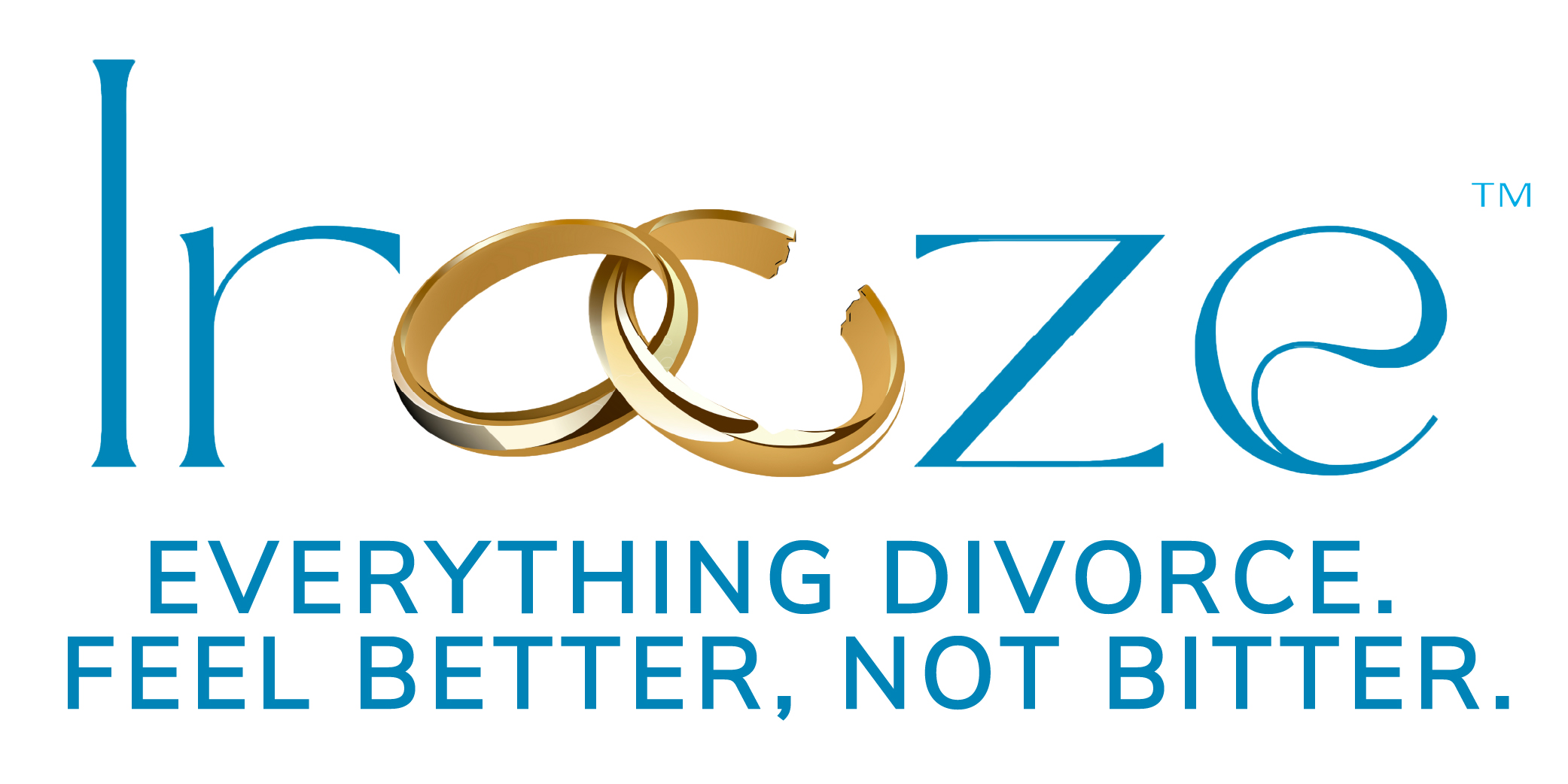It’s easy to let emotions take the reins when dealing with financial matters during a divorce. But failing to maintain financial transparency, whether through hiding assets or refusing to disclose full financial details, can lead to devastating consequences. When one spouse conceals assets or fails to be transparent about finances, it often results in prolonged legal battles, hefty court costs, and a significant breakdown of trust. This not only complicates the divorce proceedings but also leaves deep emotional scars for both parties, making divorce negotiation more challenging.
Why Financial Disclosure and Transparency are Crucial in Divorce
Divorce is not just an emotional transition but also a legal and financial one. For a fair settlement to be reached, both parties must have a complete understanding of the marital assets, which is crucial when you negotiate a divorce settlement. This includes bank accounts, investments, real estate, retirement funds, and any other significant assets.
Hiding assets, whether intentional or not, can result in:
- Extended Legal Battles: Discovering hidden assets often leads to prolonged litigation. When one party has to spend time and money to uncover concealed assets, it not only delays the process but also increases legal fees for both sides.
- Court Penalties: Courts don’t look kindly at dishonesty. If hidden assets are discovered, the guilty party may face legal consequences, including fines, losing a portion of their share, or being held in contempt of court.
- Emotional Fallout: Finding out that your spouse has been hiding assets can be a deep emotional blow. It’s not just a financial betrayal but a personal one, leaving the deceived spouse feeling angry, hurt, and mistrustful, which can impact future relationships.
A settlement agreement is a legal document that outlines the terms agreed upon by both parties, ensuring that all aspects of the divorce are covered.
The Emotional and Financial Toll of Hidden Marital Assets in Divorce
Beyond the legal complications, the emotional aftermath of discovering hidden assets can be significant. When a spouse realizes that their partner has been dishonest about finances, it can intensify feelings of betrayal, anger, and resentment. This discovery can create a ripple effect, leading to:
- Loss of Trust: Divorce is already a challenging process but learning that your partner has been concealing assets can be particularly devastating. It reinforces feelings of betrayal and can leave the other spouse questioning the authenticity of the entire marriage.
- Increased Anxiety: Discovering hidden assets often heightens feelings of insecurity and anxiety. If one spouse has been dishonest about finances, what else might they be hiding? This uncertainty can make it harder for the deceived spouse to move forward and plan for their financial future.
- Prolonged Emotional Healing: Financial dishonesty can delay the emotional healing process. Instead of focusing on moving forward, the wronged spouse may feel stuck in anger and disbelief, making it harder to find closure.
Effective settlement negotiations can help mitigate these emotional impacts by ensuring that both parties feel heard and respected during the process. For the person on the receiving end, working with a Divorce Coach would be most suitable to ensure that they remain emotionally stable and level headed, despite the challenges.
For couples seeking a more collaborative approach, learning about mutual consent divorce could offer valuable insight on how to amicably navigate the separation process.
The psychological strain of financial difficulties during a divorce can be overwhelming. Beyond the emotional devastation caused by hidden assets, financial insecurity can increase stress and anxiety, making it even harder to move on. Understanding your financial rights and securing a fair settlement provides not just financial peace but also emotional relief as you transition into the next chapter of your life.
Case Study: The Hidden Investment Account
Sarah, a client of mine, had been married for over 20 years before filing for a divorce. She had been a stay-at-home mom for most of her marriage and had left the financial management to her husband. As their divorce progressed, Sarah felt something was off when reviewing the financial disclosures her husband provided. He claimed their finances were stretched thin, but Sarah had seen them live comfortably for years.
After consulting with her divorce attorney and a divorce trained financial advisor, they began investigating further. What they discovered was that her husband had been hiding a substantial investment account he’d built over the years, quietly funneling money into it without Sarah’s knowledge.
Sarah was devastated by the discovery. What hurt the most wasn’t just the hidden money, it was the realization that her husband had been keeping this secret for years, even during their marriage. She felt like she had been living a lie. The financial betrayal reopened emotional wounds she thought had healed, making the entire divorce process much more painful.
Once the hidden assets were uncovered, the legal process dragged on. Sarah’s husband had to hire new attorneys, leading to additional costs and delays. The once-amicable divorce became a battleground, where trust was entirely shattered.
Through our coaching sessions, I helped Sarah work through the emotional pain of this discovery. Together, we focused on healing from the betrayal and reframing her future. Sarah learned to let go of the need to control every aspect of divorce and instead focused on creating financial independence and emotional strength. Once she could shift her focus to her own empowerment rather than on her ex-husband’s deceit, she was able to find peace.
How Financial Transparency Can Improve Divorce Negotiations

In divorce, maintaining full financial transparency is not just a legal requirement, it’s a moral one. Here’s why it’s so important:
- Fair Settlements: Financial transparency ensures that both parties get their fair share. Hidden assets skew the balance, potentially leaving one spouse with far less than they deserve. A fair division of assets allows both individuals to rebuild their lives on equal footing.
- Shorter Legal Process: When both parties are upfront about their financial situation, the divorce process moves more quickly. Hidden assets lead to lengthy investigations and court interventions, which only extend the emotional and financial burden of the divorce.
- Trust and Integrity: While the marriage may be ending, maintaining integrity throughout the divorce process helps to close that chapter with dignity. For those with children, transparency can help maintain a level of respect that will be important for future co-parenting relationships.
- Emotional Closure: Transparency helps both parties achieve emotional closure. When everything is out in the open, there’s less room for lingering resentment or future disputes. The process becomes more straightforward, allowing both spouses to move forward in their lives.
Financial transparency is especially important for co-parents. Clear agreements on child support, healthcare expenses, and education costs can prevent future conflicts and ensure both parents contribute fairly to the child’s upbringing. A well-structured settlement not only secures your financial future but also helps create a stable environment for your children
How to Prepare for Divorce Negotiations and Secure a Fair Settlement
Preparing for divorce negotiations is crucial to achieving a fair settlement. Start by gathering all relevant financial documents, such as tax returns, pay stubs, and bank statements. This comprehensive collection will help you understand your financial situation and make informed decisions during the negotiation process. Knowing the full scope of your marital assets, including investments, real estate, and retirement accounts, is essential for a fair division.
Next, identify your goals and priorities. Consider what matters most to you, whether it’s child custody, spousal support, or the division of marital assets. Having a clear understanding of your objectives will help you navigate the negotiation process more effectively. For instance, if child custody is a top priority, be prepared to discuss and negotiate terms that best support your children’s well-being.
It’s also important to consider the tax consequences of your divorce settlement. For example, alimony is taxable to the recipient and deductible by the payer, while child support is non-taxable. Understanding these implications can help you make informed decisions about your settlement. A CDFA, Certified Divorce Financial Analyst can help you prepare a budget and review all tax implications. Additionally, seeking legal counsel from a divorce attorney can provide valuable guidance throughout the negotiation process, ensuring your rights are protected and helping you achieve a fair settlement.
For a more comprehensive guide on preparing for a smooth transition through divorce, check out our ultimate checklist to ensure no critical steps are overlooked.
In addition to understanding the tax implications of alimony and child support, it’s important to consider how asset division can affect your post-divorce financial health. For example, dividing retirement accounts or selling a family home may have significant tax consequences. Consulting with a Certified Divorce Financial Analyst (CDFA) can help you understand these factors and ensure you’re making tax-efficient decisions.
Understanding Fair Divorce Settlements: What You Need to Know
A divorce settlement is a legally binding agreement that outlines the terms of your divorce, including the division of marital assets, spousal support, child custody, and child support. It’s essential to understand that a fair settlement is not always a 50-50 division of assets. Instead, it considers various factors such as income, earning potential, and contributions to the marriage.
A negotiated settlement is often the best outcome for both parties, as it allows for a more private and less costly process. However, it’s crucial to ensure that the settlement is fair and reasonable. For example, if one spouse has significantly higher earning potential, the division of assets and spousal support should reflect this disparity to ensure both parties can maintain a similar standard of living post-divorce.
A divorce attorney can help you navigate the negotiation process and ensure that your rights are protected. They can provide valuable insights into what constitutes a fair settlement and help you avoid common pitfalls. By working with a skilled attorney, you can achieve a settlement that is equitable and allows both parties to move forward with their lives.
As a Divorce Coach, my role is to support you while you navigate through all these decisions, help you find clarity and ensure that you are keeping your eye on your goals by making sound decisions.
Effective Communication Strategies for Divorce Negotiations
Effective communication and negotiation are critical components of a successful divorce settlement. Approach the negotiation process in a calm and respectful manner, avoiding personal attacks and inflammatory language. Instead, focus on the facts and the issues at hand, and be willing to listen to your spouse’s perspective.
Transparency and honesty are paramount during the negotiation process. Withholding information or hiding assets can damage the negotiation process and lead to further conflict. Being upfront about your financial situation helps build trust and facilitates a smoother negotiation process.
It’s also recommended to seek the assistance of a divorce attorney who can help facilitate the negotiation process and ensure that your rights are protected. An experienced attorney can provide valuable guidance, helping you navigate complex legal and financial issues and ensuring that the settlement is fair and reasonable.
As your Divorce Coach, I can work with you and your attorney to ensure that you show up as your best self throughout the process.
By approaching the negotiation process in a calm, respectful, and informed manner, you can increase the chances of achieving a fair and reasonable divorce settlement. Remember to prioritize your goals and seek the assistance of a divorce attorney to ensure that your rights are protected throughout the process.
Practical Tips for Maintaining Financial Transparency for a Fair Settlement
- Full Disclosure Early On: At the beginning of the divorce process, gather all financial documents—bank statements, tax returns, investment portfolios, and retirement accounts. Ensure that all assets, including shared and individual ones, are disclosed.
- Work with a Financial Advisor: Divorce can be complicated when it comes to financial assets, particularly if they involve investments, properties, or business interests. Consulting a divorce trained financial advisor ensures that nothing is overlooked, and they can help identify any red flags.
- Keep Emotions in Check: It’s natural to feel angry, hurt, or vengeful during a divorce, but don’t let these emotions lead you to hide assets. Not only is it illegal, but it can also backfire, dragging out the divorce process and creating more emotional and financial strain.
- Seek Support from a Divorce Coach: A divorce coach can help you manage the emotional triggers that often arise when discussing finances. Working through those emotions can help you make rational decisions, rather than reactive ones.
Let Go of the ‘Winning’ Mentality: Focus on a Fair Financial Divorce Settlement
Trying to drain your ex financially or clinging to the idea of a massive payout can backfire. Focus on reaching a fair settlement that allows both parties to move forward.
Divorce can significantly impact your credit score, especially if joint accounts or shared debts aren’t properly handled. It’s crucial to separate your finances early on, close joint accounts, and ensure that all liabilities are addressed in the divorce settlement to protect your creditworthiness moving forward.
MEDICAL/ PSYCHOLOGICAL/ LEGAL ADVICE DISCLAIMER.
The information and content provided herein is for informational and educational purposes only, does not constitute medical or psychological advice, diagnosis, or treatment, and does not establish any kind of patient-client relationship. The information and content provided herein does not, and is not intended to, constitute legal advice. Any information presented is not a substitute for any kind of professional, legal, psychological, health or medical advice, and you should not rely solely on this information. Always consult a qualified professional in the area for your particular needs and circumstances prior to making any professional, legal, health, medical, psychological and financial decisions.
Nothing contained herein should be construed as medical, psychological, legal, or financial advice, and this article is not a substitute for such advice or services. You acknowledge that the content provided herein is not a substitute for professional mental health care or medical care and is not intended to diagnose, treat or cure any mental health or medical conditions. You also understand that Hope Firsel, is not acting as a mental health counselor, medical professional or legal professional.
Hope Firsel STRONGLY RECOMMENDS THAT THOSE SEEKING MEDICAL OR MENTAL HEALTH ADVICE SEE A QUALIFIED PROFESSIONAL IN PERSON. IF YOU ARE THINKING ABOUT SUICIDE, IF YOU FEEL YOU MAY BE A DANGER TO YOURSELF OR OTHERS, OR IF YOU OTHERWISE HAVE ANY MEDICAL EMERGENCY, PLEASE IMMEDIATELY NOTIFY THE POLICE OR EMERGENCY MEDICAL SERVICES IN YOUR AREA. IN THE UNITED STATES, PLEASE DIAL 911.
RESULTS DISCLAIMER.
While we may reference certain results, outcomes or situations herein and in connection with Hope Firsel’s Services, you understand and acknowledge that we make no guarantee as to the accuracy of third-party statements made or the likelihood of success for you as a result of these statements. You understand that individual results and outcomes will vary. We cannot guarantee your success merely by your participation in Hope Firsel’s Services or your access, purchase or completion of any material provided relating to the Services, including this article. Any results provided in connection with the Services are not guaranteed or typical.





